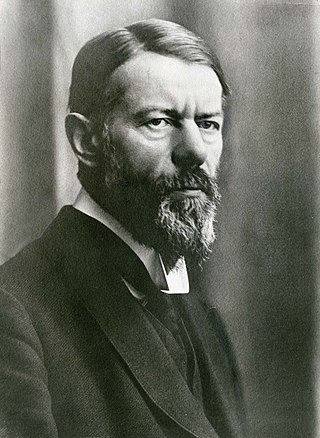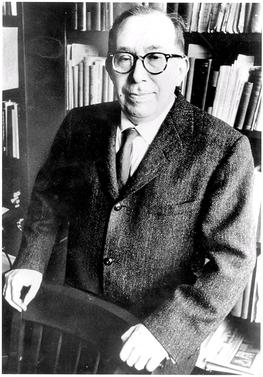Related Research Articles

Maximilian Carl Emil Weber was a German sociologist, historian, jurist, and political economist who was one of the central figures in the development of sociology and the social sciences more generally. His ideas continue to influence social theory and research.

Niccolò di Bernardo dei Machiavelli was a Florentine diplomat, author, philosopher, and historian who lived during the Italian Renaissance. He is best known for his political treatise The Prince, written around 1513 but not published until 1532, five years after his death. He has often been called the father of modern political philosophy and political science.
Science is a systematic discipline that builds and organises knowledge in the form of testable hypotheses and predictions about the universe. Modern science is typically divided into two or three major branches: the natural sciences, which study the physical world; and the behavioural sciences, which study individuals and societies. The formal sciences, which study formal systems governed by axioms and rules, are sometimes described as being sciences as well; however, they are often regarded as a separate field because they rely on deductive reasoning instead of the scientific method or empirical evidence as their main methodology. Applied sciences are disciplines that use scientific knowledge for practical purposes, such as engineering and medicine.

Leo Strauss was an American scholar of political philosophy. Born in Germany to Jewish parents, Strauss later emigrated from Germany to the United States. He spent much of his career as a professor of political science at the University of Chicago, where he taught several generations of students and published fifteen books.

Persecution and the Art of Writing, published in 1952 by the Free Press, is a book of collected articles written by Leo Strauss. The book contains five previously published essays, many of which were significantly altered by Strauss from their original publication:
- Introduction
- Persecution and the Art of Writing
- The Literary Character of the Guide to the Perplexed
- The Law of Reason in the Kuzari
- How to Study Spinoza's Theologico-Political Treatise

The sociology of scientific knowledge (SSK) is the study of science as a social activity, especially dealing with "the social conditions and effects of science, and with the social structures and processes of scientific activity." The sociology of scientific ignorance (SSI) is complementary to the sociology of scientific knowledge. For comparison, the sociology of knowledge studies the impact of human knowledge and the prevailing ideas on societies and relations between knowledge and the social context within which it arises.
Harry Victor Jaffa was an American political philosopher, historian, columnist, and professor. He was a professor emeritus at Claremont McKenna College, Claremont Graduate University, and was a distinguished fellow of the Claremont Institute. Robert P. Kraynak says his "life work was to develop an American application of Leo Strauss's revival of natural-right philosophy against the relativism and nihilism of our times".

Barrington Moore Jr. was an American political sociologist, and the son of forester Barrington Moore.

Sociology as a scholarly discipline emerged, primarily out of Enlightenment thought, as a positivist science of society shortly after the French Revolution. Its genesis owed to various key movements in the philosophy of science and the philosophy of knowledge, arising in reaction to such issues as modernity, capitalism, urbanization, rationalization, secularization, colonization and imperialism.

Mankind Quarterly is a pseudoscientific journal that covers physical and cultural anthropology, including human evolution, intelligence, ethnography, linguistics, mythology, archaeology, and biology. It has been described as a "cornerstone of the scientific racism establishment", a "white supremacist journal", and "a pseudo-scholarly outlet for promoting racial inequality". The Mankind Quarterly is published by the white nationalist Human Diversity Foundation.

Robert Neelly Bellah was an American sociologist and the Elliott Professor of Sociology at the University of California, Berkeley. He was internationally known for his work related to the sociology of religion.

Thomas Lee Pangle, is an American political scientist. He holds the Joe R. Long Chair in Democratic Studies in the Department of Government and is Co-Director of the Thomas Jefferson Center for Core Texts and Ideas at the University of Texas at Austin. He has also taught at the University of Toronto and Yale University. He was a student of Leo Strauss.

Michael Burawoy is a British sociologist working within Marxist social theory, best known as the leading proponent of public sociology and the author of Manufacturing Consent: Changes in the Labor Process Under Monopoly Capitalism—a study on the sociology of industry that has been translated into a number of languages.
The following events related to sociology occurred in the 1980s.
Stephen Park Turner is a researcher in social practice, social and political theory, and the philosophy of the social sciences. He is Graduate Research Professor in the Department of Philosophy of the University of South Florida, where he also holds the title Distinguished University Professor. He has held a NEH Fellowship, was Simon Honorary Professor at Manchester University and has twice been the Advanced Fellow at the Swedish Collegium for Advanced Studies
Peter Eli Gordon is an American historian of philosophy, a critical theorist, and intellectual historian. The Amabel B. James Professor of History and Faculty Affiliate in the Department of Philosophy at Harvard University, Gordon focuses on continental philosophy and modern German and French thought, with particular emphasis on the German philosophers Theodor Adorno and Martin Heidegger, critical theory, continental philosophy during the interwar crisis, and most recently, secularization and social thought in the 20th century.
Margaret Candee Jacob is an American historian of science and Distinguished Professor of Research at UCLA. She specializes in the history of science, knowledge, the Enlightenment and Freemasonry.

Heidegger, Strauss, and the Premises of Philosophy: On Original Forgetting is a book by Richard Velkley, in which the author examines the philosophical relationship between Martin Heidegger and Leo Strauss. It has been translated into French and Chinese.

Misbehaving Science: Controversy and the Development of Behavior Genetics is a 2014 book about the history of behavior genetics. It was written by University of California, Los Angeles sociologist Aaron Panofsky, and was published by the University of Chicago Press. It won the 2015 President's Book Award from the Social Science History Association.
Jason Ānanda Josephson Storm is an American academic, philosopher, social scientist, and author. He is currently Professor in the Department of Religion and chair in Science and Technology Studies at Williams College. He also holds affiliated positions in Asian studies and Comparative Literature at Williams College. Storm's research focuses on Japanese religions, European intellectual history from 1600 to the present, and theory in religious studies. His more recent work has discussed disenchantment and philosophy of social science.
References
- ↑ Lassman, Peter (2005). "Leo Strauss, Max Weber, and the Scientific Study of Politics by Nasser Behnegar (review)". Max Weber Studies. 5 (1): 163–164. doi:10.1353/max.2005.0016. ISSN 2056-4074.
- ↑ Jensen, Michael (June 2005). "Leo Strauss, Max Weber, And The Scientific Study Of Politics". Canadian Journal of Political Science/Revue canadienne de science politique. 38 (2): 517–519. doi:10.1017/S0008423905399999. ISSN 1744-9324.
- ↑ Kautz, Steven (December 2003). "Book Review: Nasser Behnegar, Leo Strauss, Max Weber, and the Scientific Study of Politics (Chicago: University of Chicago Press, 2003), pp. 254, US$30.00". Political Science. 55 (2): 76–78. doi:10.1177/003231870305500208. ISSN 0032-3187.
- ↑ Janover, Michael Maurice (December 2006). "Book Reviews". Australian Journal of Political Science. 41 (4): 649–662. doi:10.1080/10361140600959858. ISSN 1036-1146.
- ↑ Baumann, Fred (March 2004). "Nasser Behnegar. Leo Strauss, Max Weber, and the Scientific Study of Politics . xiii + 221 pp., bibli., index. Chicago: University of Chicago Press, 2003. $30, £21 (cloth)". Isis. 95 (1): 139–140. doi:10.1086/423563.